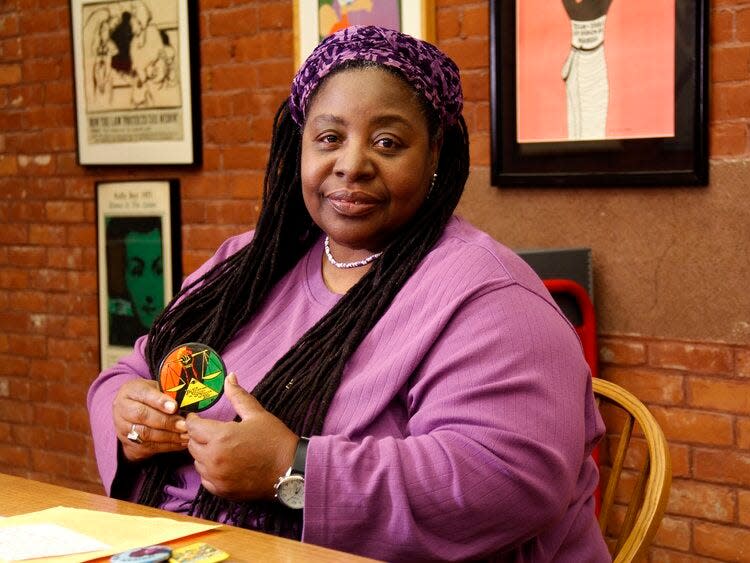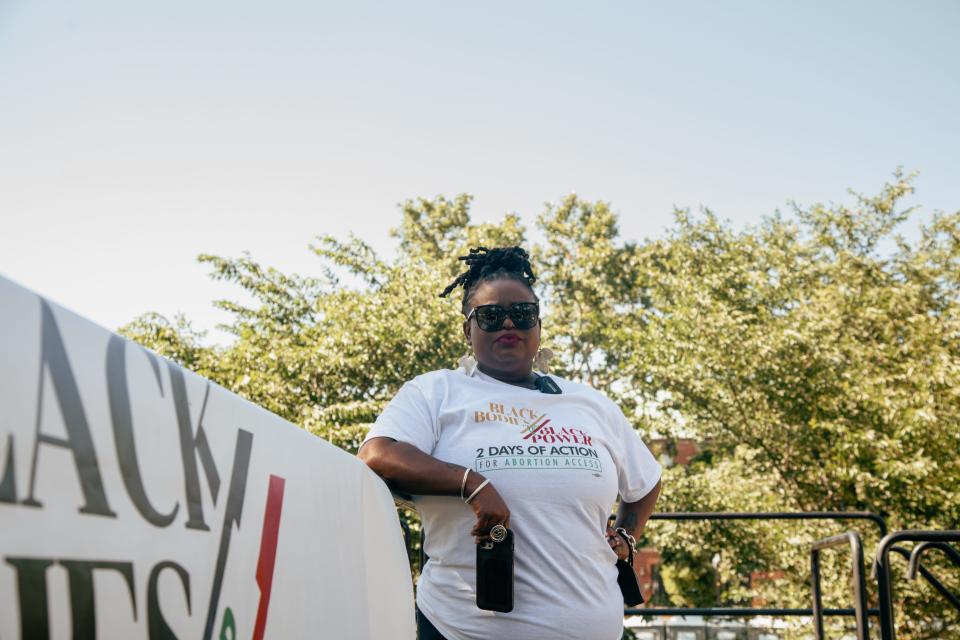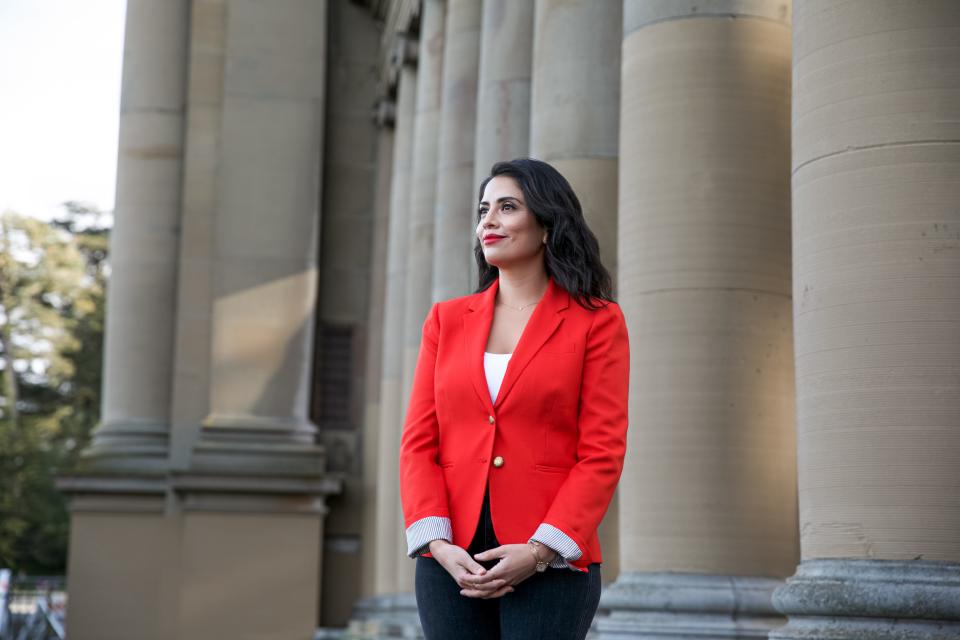This is America: Reproductive justice has roots in communities of color. It's time we honor it's history.
- Oops!Something went wrong.Please try again later.
In a Chicago hotel room in 1994, the debate over abortion access in the U.S. was changed forever.
There, 12 Black women gathered to create the reproductive justice framework, which formed the bedrock of a movement rapidly gaining momentum today.
Those women were Toni M. Bond Leonard, Alma Crawford, Evelyn S. Field, Terri James, Bisola Marignay, Cassandra McConnell, Cynthia Newbille, Loretta Ross, Elizabeth Terry, ‘Able’ Mable Thomas, Winnette P. Willis, and Kim Youngblood. And they called themselves the Women of African Descent for Reproductive Justice.
Happy Women's History Month! My name is Christine Fernando, and I'm a breaking news reporter covering abortion and reproductive rights at USA TODAY. I’d like to welcome you to this week’s "This Is America."

Race and justice news we are reading
Michelle Yeoh makes Oscars history as first Asian to win best actress: 'A beacon of hope'
That Angela Bassett Oscars loss stung. Why we get so upset when our favorite stars are snubbed
'Everything Everywhere All at Once' sweep: A long-awaited, well-deserved win for Asian Americans
What are the principles of reproductive justice?
For years, Marsha Jones, executive director of the Afiya Center, a Texas-based reproductive justice organization, has had an Audre Lorde quote as her email signature.
"There is no thing as a single-issue struggle because we do not live single-issue lives," the quote reads.
Jones said it sums up the approach of the reproductive justice framework.
Melding human rights and social justice, reproductive justice was a reaction to criticism that the reproductive rights movement was dominated by wealthy and middle class white women, who often ignored the intersectionality of people's identities and struggles against various forms of marginalization, including sexism, racism, queerphobia, and economic injustice.
SOUTH CAROLINA WOMAN ARRESTED: Incident draws attention to criminalization of self-managed abortions

As a result, the framework, hinging on the human right "to maintain personal bodily autonomy, have children, not have children, and parent the children we have in safe and sustainable communities," takes a more intersectional approach, said Monica Simpson, executive director of SisterSong Women of Color Reproductive Justice Collective, a multiracial reproductive justice organization.
"We can't organize just around single issues," Simpson said. "Our silos are not going to save us."
HUMAN RIGHTS GROUPS PEN LETTER TO UN: US abortion bans violate international law, 200 human rights groups say
'Following in the footsteps'
Growing up in a school system that rarely acknowledged the history and contributions of communities of color to the fabric of our nation, I've always been hungry to learn more about these often overlooked stories.
Some of the stories I love most are ones that tie our history to our present, that show an intergenerational passing on of knowledge, and depict new generations building on the legacies of those before them. This is one of those stories.

VIEWS ON ABORTION BY STATE: Many Americans living in states where abortion rights are limited want more rights
Lupe Rodriguez, executive director of the National Latina Institute for Reproductive Justice, said it is "powerful" for her to look back on the effect this framework has had in history.
"This generation of people working within the reproductive justice framework are definitely following in the footsteps and expanding the movement, growing it and really taking it into the future," she said.
Loretta Ross, one of the founders of reproductive justice, said the framework also built on Black feminist theory that came before them.
"We built upon a legacy more so than totally creating something out of whole cloth," she said. "The next generations are also building on that legacy.”
'IT'S TIME FOR US TO BE BOLD': Why six religious leaders are fighting to expand abortion access
--
This is America is a weekly take on current events from a rotating panel of USA TODAY Network journalists with diverse backgrounds and viewpoints. If you're seeing this newsletter online or someone forwarded it to you, you can subscribe here. If you have feedback for us, we'd love for you to drop it here.
Contact Christine Fernando at cfernando@usatoday.com or follow her on Twitter at @christinetfern.
This article originally appeared on USA TODAY: Reproductive justice: History of fight for health care, abortion rights

